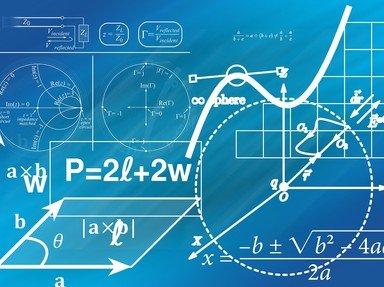Quiz Answer Key and Fun Facts
1. What type of number results when a positive odd number is raised to a power that is a positive integer?
2. What is the first odd prime number?
3. Are decimals odd numbers or even numbers?
4. What are the factors of the odd number 15?
5. After 1, what is the next odd happy number?
6. Which odd number is a perfect cube?
7. Given A = 1, B = 2, ... Z = 26, is odd (o + d + d) an odd number? (In other words, does adding o + d + d result in an odd number?)
8. In which of the following equations are all the root(s) odd?
9. The human body usually has an odd number of which body part?
10. Suppose you order a pizza with six slices. Which of these percentages of the pizza would you have to eat in order to be left with an odd number of slices?
Source: Author
Buddy1
This quiz was reviewed by FunTrivia editor
CellarDoor before going online.
Any errors found in FunTrivia content are routinely corrected through our feedback system.

